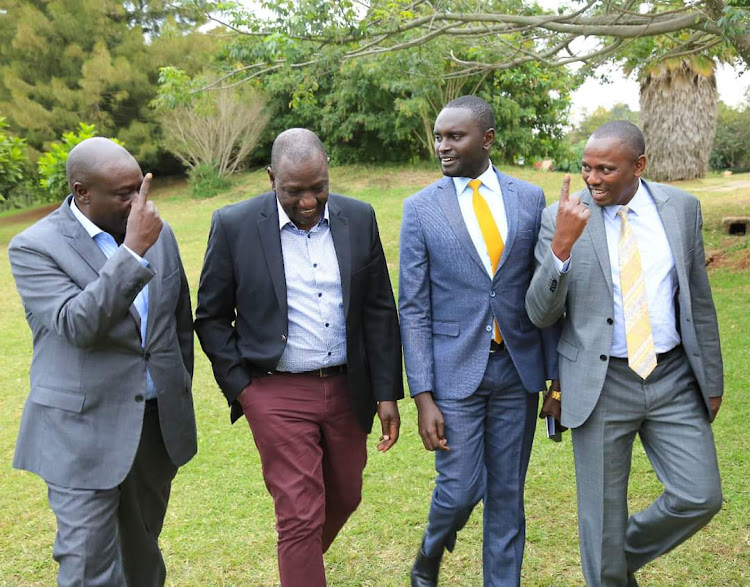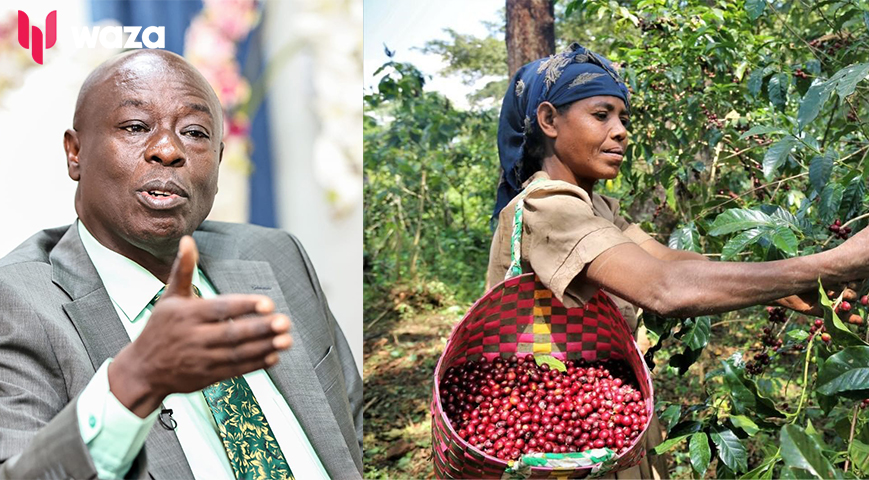According to Deputy President Rigathi Gachagua, a group of cartels in the coffee industry he tried to bribe him to delay his enforcement of reforms in the coffee business.
In an interview with Inooro FM, the DP claimed that he was given a kickback of Ksh. 2 for every kilo of coffee shipped from Kenya, albeit he withheld the identities of those who sought to bribe him.
According to Gachagua, everything started when President Ruto assigned him to lead the Coffee reforms. In a meeting with all parties involved in the coffee industry, he claims, a decision was made to reinstate the Kenyan Coffee Board.
As we enter the last Quarter of 2023, it is important to review the progress of our work and identify the necessary adjustments for timely, efficient, and effective delivery of service.
I am Chairing the 21st Ordinary Session of the Intergovernmental Budgetary Economic Council… pic.twitter.com/9zMH35BBXz— H.E. Rigathi Gachagua, EGH (@rigathi) October 6, 2023Did you read this?
He claims that to ensure that each stage of the coffee value chain was independent of the others, they decided to give the Kenya Planters Cooperative Union control over milling and cancel the numerous licenses granted to brokers.
According to Gachagua, such proposals sent shockwaves across the industry, and the cartels above began to hoard coffee to thwart the farmers' efforts.
Gachagua claimed he kept his stance in the face of expectations from the cartels that the government would cave and restore them.
"They came to see me in my village and asked whether we could hand them back the three licenses. I told them, 'When you broker our coffee to foreign countries, you get high returns, how about, whatever you fetch from exports, we (Kenyans) split the spoils. Were you to give the farmer Ksh.150, you would be allowed to continue your business."
"They went and later sent their representative (a black person) who comes from our region but who works for them (foreigners). He told me these foreigners are offering Ksh.2 per kilo of coffee exported. I did the math and it would be good returns and I would be rich but I cannot sacrifice our farmers," said the DP.
President @WilliamsRuto and I are joined at the hip. We talk on a daily basis. My relationship with the President is top-notch. He has mandated me with a great responsibility because he understands my output.
— H.E. Rigathi Gachagua, EGH (@rigathi) October 6, 2023
We shall continue working for Kenyans until the end of our term. pic.twitter.com/lVvaLbWUwA
He added: "I refuse to sell out the farmer who elected me. I need money, just as any other citizen, but I cannot be corrupt. "My expenditure is minimal; I eat very little food. My wife is a pastor, and you bet she does not need that much, even for her hair maintenance. My sons are employed and well capable; I do not need the money."
Gachagua acknowledged that bringing order back to the coffee markets has been challenging but said the struggle is now 70% won.
"I have succeeded in every area, tea, and milk in particular, but coffee has been quite challenging. The people who buy our coffee have held the government and the coffee farmer hostage, "he said.
According to the DP, measures are in place to break up the cartels above by selling directly to consumers, including Starbucks.

When Starbucks lands in Kenya, those cartels will come looking for me because they have been selling to him at a high cost.... the day they see Ruto and Gachagua with him (Starbucks), they will look for me to renegotiate. Should they come with reasonable terms and prices, I will listen to them," he said.
A value chain was developed in the coffee industry in 2019 thanks to policies. The new regulations were implemented to ensure that different people weren't involved in the market's purchasing, selling, processing, and brokering.
Since the farmer wasn't always present to verify that they got a fair bargain, the policies ensured that cartels weren't taking advantage of the milling losses and grading.
Meanwhile, the DP says the government is already sealing a deal to secure a promising and viable Chinese market for Kenyan coffee.









